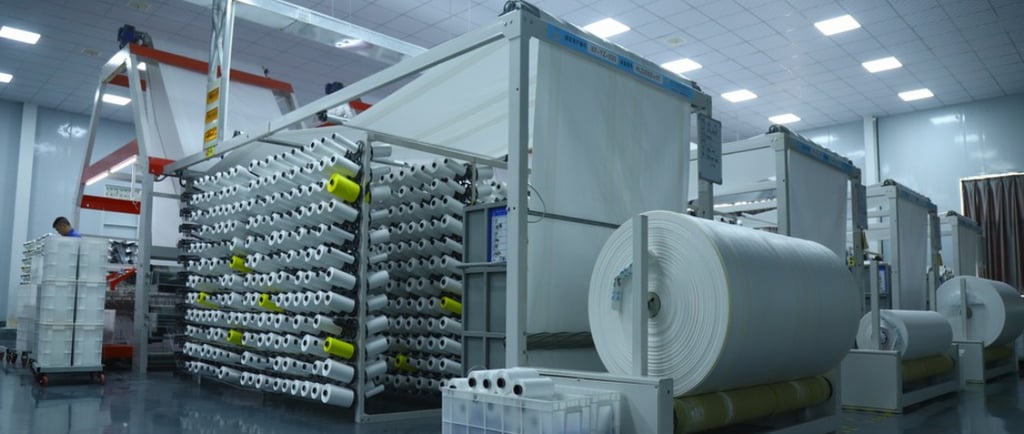The Ultimate Guide to Choosing the Right FIBC Bags for Your Bulk Material Handling Needs
Flexbulkbags
3/16/20252 min read


In the fast-paced world of logistics and manufacturing across Europe and North America, efficient bulk material handling is crucial for maintaining productivity and reducing costs. Flexible Intermediate Bulk Containers (FIBCs), commonly known as ton bags or bulk bags, have become indispensable for transporting and storing everything from chemicals and minerals to food products and construction materials. But with so many options available, how do you select the perfect FIBC bags that meet your specific requirements? This guide will walk you through the key factors to consider, ensuring you make an informed decision that aligns with your operational needs and regulatory standards.
Understanding the Different Types of FIBC Bags
FIBC bags come in various designs, each tailored to different applications. For instance, Type A bags are standard, non-conductive options ideal for non-flammable materials like sand or gravel. If you're dealing with combustible dusts common in pharmaceutical or chemical industries in the US or EU, Type B bags offer basic anti-static protection. For higher safety levels, Type C (conductive) and Type D (dissipative) bags are essential to prevent electrostatic discharges.
In the agricultural sector, where food safety is paramount, food-grade FIBC bags compliant with FDA and EU regulations ensure contamination-free storage of grains, powders, or seeds. Construction firms in North America often opt for heavy-duty ton bags with reinforced loops for lifting heavy loads like aggregates. By matching the bag type to your material—whether it's fine powders requiring sift-proof seams or hazardous goods needing UN certification—you can avoid costly mishaps and comply with OSHA or REACH standards.
Key Factors to Consider When Selecting Ton Bags
When sourcing bulk bags for your European or American operations, prioritize these elements:
1.Load Capacity and Safety Factor: Most FIBC bags handle 500-2000 kg, but always check the Safe Working Load (SWL) and safety factor (typically 5:1 or 6:1 for reusable bags). For industries like mining or recycling, where durability is key, opt for bags with UV protection to withstand outdoor exposure.
2.Material and Construction: Polypropylene (PP) is the go-to fabric for its strength and affordability. Laminated or coated versions provide moisture resistance, vital for hygroscopic materials in humid climates like the UK or Pacific Northwest. Custom features, such as baffles for stability or liners for liquids, can enhance efficiency.
3.Filling and Discharging Options: Top-loading spouts simplify filling in automated warehouses, while bottom discharge valves speed up unloading. For eco-conscious businesses in California or Germany, reusable designs reduce waste and support sustainability goals.
4.Compliance and Certifications: Ensure your ton bags meet international standards. In the EU, look for bags adhering to ISO 21898, while US buyers should verify AIB or BRC certifications for food contact. This not only mitigates risks but also streamlines customs processes in transatlantic trade.
Cost is another consideration—while cheap imports might tempt, investing in high-quality FIBC bags from reliable suppliers minimizes downtime and replacement expenses. According to industry reports, businesses using certified bulk bags report up to 20% fewer handling incidents.
Benefits of High-Quality Bulk Bags for Your Business
Switching to premium ton bags can transform your supply chain. For example, in the chemical industry, anti-static FIBC bags prevent explosions, safeguarding workers and facilities. In food processing, hygienic designs extend shelf life and reduce spoilage. Moreover, with growing emphasis on circular economies in Europe, recyclable or biodegradable options align with corporate sustainability pledges, appealing to environmentally aware clients.
Final Thoughts
Choosing the right FIBC bags isn't just about storage—it's about optimizing your entire workflow. By focusing on quality, compliance, and customization, you can enhance safety, efficiency, and cost savings. Ready to upgrade your bulk material handling? Explore our range of ton bags tailored for Europe and the United States markets or contact our experts for personalized advice.
